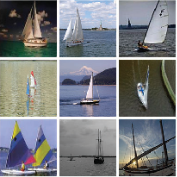With the increasing pursuit of objective reports, automatically understanding media bias has drawn more attention in recent research. However, most of the previous work examines media bias from Western ideology, such as the left and right in the political spectrum, which is not applicable to Chinese outlets. Based on the previous lexical bias and informational bias structure, we refine it from the Chinese perspective and go one step further to craft data with 7 fine-grained labels. To be specific, we first construct a dataset with Chinese news reports about COVID-19 which is annotated by our newly designed system, and then conduct substantial experiments on it to detect media bias. However, the scale of the annotated data is not enough for the latest deep-learning technology, and the cost of human annotation in media bias, which needs a lot of professional knowledge, is too expensive. Thus, we explore some context enrichment methods to automatically improve these problems. In Data-Augmented Context Enrichment (DACE), we enlarge the training data; while in Retrieval-Augmented Context Enrichment (RACE), we improve information retrieval methods to select valuable information and integrate it into our models to better understand bias. Extensive experiments are conducted on both our dataset and an English dataset BASIL. Our results show that both methods outperform our baselines, while the RACE methods are more efficient and have more potential.
翻译:暂无翻译





